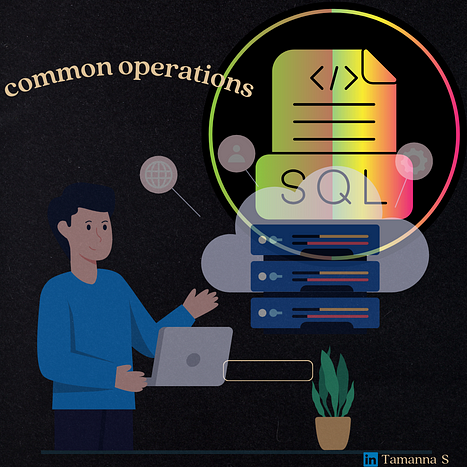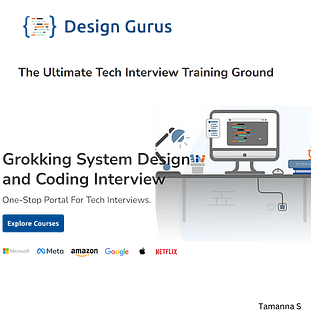Introduction to SQL: A Beginner’s Guide:1

SQL is a standard language for accessing and manipulating databases. It stands for Structured Query Language and it is used by many relational database management systems (RDBMS) such as MySQL, Oracle, SQL Server, and more. In this blog post, I will explain what SQL is, why you should learn it, and how it compares to other types of databases. I will also provide some useful links and resources for you to learn more about SQL in detail.
What is SQL?
SQL is a language that allows you to communicate with a database and perform various operations on the data stored in it. Some of the common operations that you can do with SQL are:

- Create a database and define its structure.
- Insert, update, and delete data in a database.
- Query and retrieve data from a database.
- Join and combine data from multiple tables.
- Apply filters, functions, and aggregations on the data.
- Create views, indexes, and constraints on the database.
- Set permissions and security on the database.
SQL is based on relational algebra and tuple relational calculus, which are mathematical concepts that describe how data can be organized and manipulated in a logical way. SQL follows a set of rules and syntax that are standardized by the American National Standards Institute (ANSI) and the International Organization for Standardization (ISO). However, different RDBMS may have their own extensions and variations of SQL to provide additional features and functionalities.
Why learn SQL?
SQL is one of the most widely used and popular languages for data analysis and management. It has many benefits and advantages, such as:

- SQL is easy to learn and use. It uses English-like statements and keywords that are intuitive and expressive. You can write SQL queries without having to know the details of how the database works or how the data is stored.
- SQL is powerful and versatile. It can handle large and complex data sets and perform various types of operations on them. You can use SQL to perform tasks such as data cleaning, data transformation, data mining, data visualization, and more.
- SQL is portable and compatible. It can work with different types of databases and platforms. You can use SQL to access and manipulate data from various sources, such as web servers, cloud services, applications, and more.
- SQL is in high demand and valuable. It is a skill that is required and sought after by many employers and industries. SQL is used by many professionals, such as data analysts, data scientists, software engineers, web developers, business analysts, and more.
SQL vs NoSQL

NoSQL databases have their own advantages and disadvantages, depending on the use case and the nature of the data. Some of the reasons why you might want to use a NoSQL database are:
- You have unstructured or semi-structured data that does not fit well in a relational model.
- You need to scale your database horizontally and distribute it across multiple servers.
- You need to handle high volumes and velocities of data.
- You need to support flexible and dynamic schemas that can change over time.
- You need to optimize your database for specific operations, such as real-time processing, text search, or graph traversal.
Therefore, choosing between SQL and NoSQL databases depends on your data and your requirements. There is no one-size-fits-all solution, and sometimes you may even need to use both types of databases in your project.
Conclusion
SQL is a language that allows you to access and manipulate data in relational databases. It is easy to learn, powerful, portable, and valuable. SQL is used by many RDBMS and by many professionals and industries. SQL is also compared to NoSQL, which is another type of database that does not follow the relational model.
I hope this blog post has given you a brief introduction to SQL and its features. If you want to learn more about SQL in detail, you can check out some of the following links and resources:
- SQL Introduction — W3Schools: A tutorial that covers the basics of SQL and its syntax
- DBMS SQL Introduction — javatpoint: A tutorial that explains the rules and process of SQL and its components
- SQL — Overview — Online Tutorials Library: A tutorial that describes what SQL can do and how it works with RDBMS
- Introduction to SQL (Structure Query Language) | Study tonight: A tutorial that introduces the concepts and history of SQL and its applications.
If you liked this blog post and found it informative and helpful, please like and share it with your friends and colleagues. You can also follow me on LinkedIn and join my SQL series learning community, where I will post more articles and tips on SQL and data analysis. You can also check out my ebook SQL for Students on Gumroad, which is a comprehensive SQL guide and practical with examples. Thank you for reading and happy learning!
Good Note: How to Ace Your Tech Interviews with DesignGurus.

DesignGurus.io is a one-stop portal for tech interviews, offering courses on system design and coding patterns. Whether you are a beginner or a seasoned professional, you can find relevant material to level up your skills and land your dream job in Microsoft, Meta, Google, and Amazon. The courses are designed by experienced engineers from FAANG companies, who also provide mock interviews and feedback. One of the most popular courses is Grokking the Coding Interview, which teaches you how to solve coding problems using patterns. If you are interested in learning more, you can visit the website here and check out all courses here and here.
Comments
Post a Comment